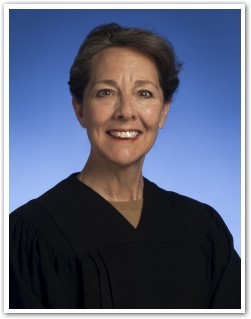Elaborating on her earlier rulings at the request of plaintiffs in litigation regarding mail-in ballots. Nashville Chancellor Ellen Hobbs Lyle this week underscored the fact that any voter living with someone with an underlying medical condition is eligible to apply for an absentee ballot. 
Chancellor Lyle
Chancellor Lyle pointed out in a new opinion that a state Supreme Court order of August 5th, issued in response to a state appeal of her earlier rulings, requires “that anyone residing with a COVID- vulnerable voter would be eligible to vote absentee in November.”
Lyle added that the Supreme Court order “required the State to make its concession clear to voters” and said : “We instruct the State to ensure that appropriate guidance, consistent with the State’s acknowledged interpretation, is provided to Tennessee registered voters with respect to the eligibility of such persons to vote absentee by mail in advance of the November 2020 election … .”
Memphis attorney Steve Mulroy, who represents several of the plaintiffs in the case, noted, as Lyle had, that, before the Supreme Court, the state had conceded “that if a person determines for him/herself they’re COVID-eligible, they can’t be prosecuted for perjury.”
Mulroy said further that the absentee requirements, issued as required of the state and noted on the website of the CDC (Centers for Disease Control and Prevention,), reference “all the many quite common underlying conditions—asthma, high blood pressure, diabetes (Type I and Type II), obesity, smoking,” and apply as well to “caretakers” of persons with qualifying conditions.
Said Mulroy: “Adding in anyone who ‘resides with’ such voters, and you’re probably north of 2/3 of voters. Unless you’re a perfectly healthy twenty-something who lives only with other twenty-somethings and doesn’t ever look in on Grandma, you’re probably absentee-eligible at this point.”